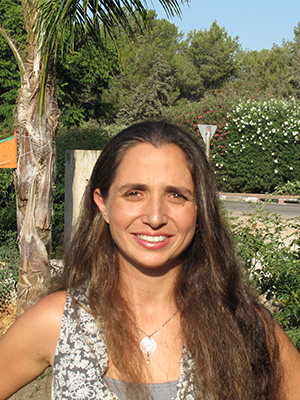Dr. Naama Geva-Zatorsky (Technion Israel Institute of Technology, Haifa) (online)
As guest of the CRC 1182 (host: Thomas Bosch)
Dr. Naama Geva-Zatorsky
Technion Israel Institute of Technology, Haifa.
Geva-Zatorsky lab: Gut Microbiota – Host Interaction
Talks about:
Gut Microbiota-Host Interactions in health and disease
In recent years, there has been a scientific awakening to the impact of microbial communities on host physiology. The human gut microbiota has been shown to be associated with a plethora of diseases from diverse etiologies. The microbiome can change during the progression of some diseases, and in some cases was linked to disease severity and outcome. The fecal microbiome as a whole was shown to have therapeutic effects, for example in Clostridium difficile infections where it has been integrated into treatment, with high success rates. Some microbiome-wide association studies have suggested that the health impact of the gut microbiota in various human populations is related to relative changes in the balance of the two major gut resident bacterial phyla, Bacteroidetes and Firmicutes1. Our study2 has identified the immunologic and gut transcriptional responses to monocolonization of Germ-Free mice with each of 62 human gut microbial strains encompassing 53 species, across phyla. We further assessed their functional effects in disease settings such as experimental colitis3 and rheumatoid arthritis4. Overall, we found a myriad of phenotypes, including a few “signature” outcomes specific to certain microbes and many redundant effects shared across phylogenetically distant microbes. In my lab, we are studying the interactions of gut microbes with the mammalian host, in a dynamic and spatial manner and at real-time. We do so by applying unique methods5 that allow us to focus on microbes of interest, in an individualized manner, in space and time, and while interacting with the host. It is currently clear that the microbiota has profound effects on host physiology, yet studies on their causal effects, and functional molecules are still in their infancy. Our major interest is to characterize the molecular mechanisms underlying gut microbiota-host interactions.
- Jandhyala, S. M. et al. Altered intestinal microbiota in patients with chronic pancreatitis: implications in diabetes and metabolic abnormalities. Scientific reports 7, 43640, doi:10.1038/srep43640 (2017).
- Geva-Zatorsky, N. et al. Mining the Human Gut Microbiota for Immunomodulatory Organisms. Cell 168, 928-943 e911, doi:10.1016/j.cell.2017.01.022 (2017).
- Sefik, E. et al. MUCOSAL IMMUNOLOGY. Individual intestinal symbionts induce a distinct population of RORgamma(+) regulatory T cells. Science 349, 993-997, doi:10.1126/science.aaa9420 (2015).
- Tan, T. G. et al. Identifying species of symbiont bacteria from the human gut that, alone, can induce intestinal Th17 cells in mice. Proc Natl Acad Sci U S A 113, E8141-E8150, doi:10.1073/pnas.1617460113 (2016).
- Geva-Zatorsky, N. et al. In vivo imaging and tracking of host-microbiota interactions via metabolic labeling of gut anaerobic bacteria. Nat Med 21, 1091-1100, doi:10.1038/nm.3929 (2015).
Join Zoom meeting:
https://us02web.zoom.us/j/89560227162?pwd=UkdBbUdwV0luWEg1bFpWV1BjSkxDQT09
Meeting-ID: 895 6022 7162
Kenncode: 004922
Who
When
February 24th, 2021
13:00





